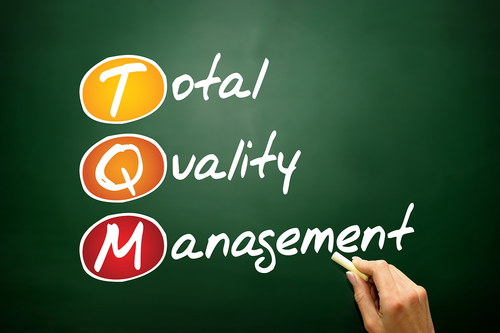For years, Ford Motor Company has reminded us: QUALITY IS JOB 1. It really should be the goal for all of us. Commitment to quality reflects our personal values and ultimately determines whether we can compete in the game of business. Customers are the final judge.
Retired business executive Jack Welch, said, “The value decade is upon us. If you can’t sell a top-quality product at the lowest price, you’re going to be out of the game.”
What is Quality?
For many, quality suggests the superiority of design, materials, or workmanship in a product or service. You may think of high-end brands like Mercedes, Gucci, or even Apple. However, “quality” is vital to every business, even if the target customer is at the low-end or mass market.
Dr. W. Edwards Deming, pioneer of quality improvement methods, says that the customer’s definition of quality is the only one that matters. So, what should quality mean to you?

I like to think of quality as a product or service that conforms to—and exceeds where possible— customer specifications or expectations. For example, are the roof shingles the grade specified in the house plans? Has the steel part been machined to engineering specifications? Was the furniture delivered within the promised range of 8:00 a.m. to 10:00 a.m.? Are the restrooms “clean”?
And a customer is not only the end-user or consumer, but can also be the next step in a business process—the often overlooked internal customer (see “Five Customer Types”).
In an assembly line operation, station two is the internal customer of station one. The order-fulfillment department is the customer of the order-processing department. The sales process is a customer of the advertising or lead generation process. Each “customer” in a chain of business activities wants their specifications or expectations met.
Quality is achieved when you put measures into a business system or process that prevent mistakes, defects and deficiencies—the waste of the business that drives away customers and robs you of profit.
In short, everything that moves without errors through your business operation—from receipt of order to the delivery of the product or service—represents quality. And you might be shocked by the number of errors and mistakes made every day in a typical business, including yours!
Total Quality Management
Total Quality Management (TQM) is an approach used by organizations to achieve continuous improvement of business processes. A focus on quality will lead your organization to reduced waste and rework, greater efficiency, lower costs, and happier customers.

Here are seven principles of TQM that provide a foundation for improving quality in your organization.
- You can and must manage quality – Quality doesn’t just happen. It is the result of intelligent effort. Many companies struggle with low-grade business processes and reoccurring customer complaints. Operational excellence and quality goods and services can only be accomplished by focusing on the improvement of daily business activities.
- Processes, not people, are usually the problem – First look for a weak business process before blaming people. If your process is causing quality problems, no amount of new hiring or training will change the outcome. Put people into an effective business system or process and you will get their best performance.
- Find and fix the root cause of the problem – When you have a quality problem, use the 5-Whys Analysis to discover its true source; it may not be what you think. Go observe the process first-hand. Talk with workers. You may even find the source of the problem to be in a different part of the business.
- Quality must be measured – Your quality management system is only effective if you can quantify results. Are you achieving at least 4 Sigma on a 6 Sigma scale? Workers need frequent feedback to know how they are doing in relation to the goal. You can’t know how many mistakes or errors happen in your operation unless you measure.
- Strive for continuous quality improvement – Total Quality Management happens every day. The work is never done. It is a permanent mindset within your business culture. Real improvements must occur frequently and continually in order to drive customer loyalty, profitability, and growth.
- Every person is responsible for quality – As discussed, the customer of every business process is the next process in the line, ending with the person who buys your goods or services. Every worker and manager has a part to play for ensuring the highest level of quality—the fewest number of rejects, rework, and returns. Delighting the customer is the core responsibility of every employee and every business.
- Quality is a long-term investment – Quality management is not a quick fix—not just problem-solving. Creating a business culture around quality requires managers to promote improvement workshops, refine business processes, learn by measurement and feedback, and then repeat the cycle as needed. Management style and business culture determine long-term success.
Quality is a Choice
Human error and mistakes are normal. How many you will tolerate is a business decision. Remember, without a conscious effort to improve, you will hover in the 2-3 Sigma range and lose a significant portion of your potential profit. High-quality business systems and processes pay for themselves many times over!
I recommend that you strive for a 99% yield, or 1% waste—about 4 Sigma in your core business processes. This is not only achievable but essential in a competitive marketplace. Get your team together and begin today!







